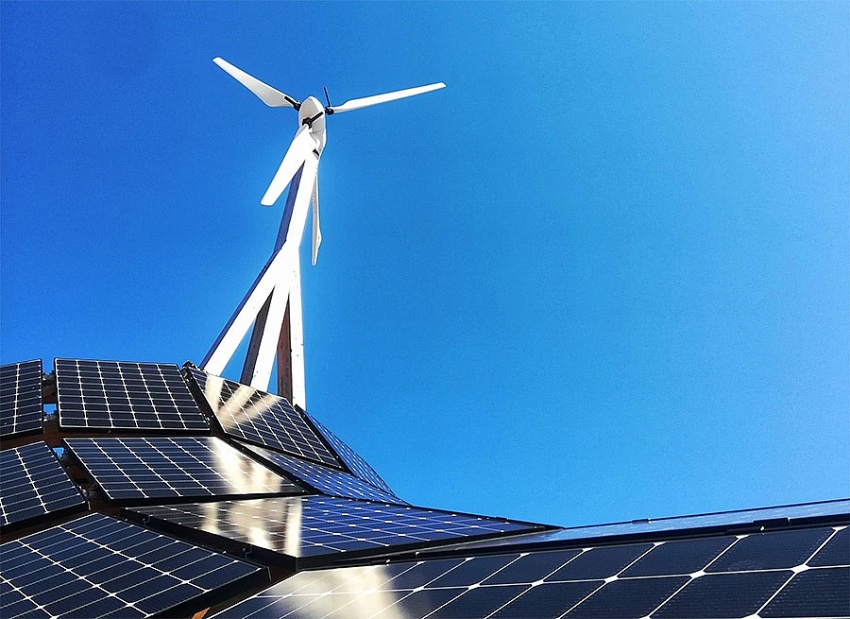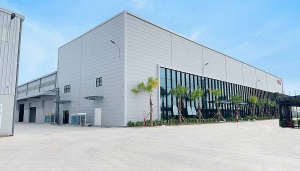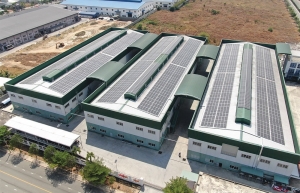Vietnam explores bypassing EVN on direct rooftop solar sales
This announcement was made on May 20, following Ha's conclusion on the direct power purchase agreement (DPPA) mechanism, which allows renewable energy producers to sell directly to large electricity consumers.
The draft DPPA decree, currently under consultation, outlines two models developed by the Ministry of Industry and Trade (MoIT): one using private transmission lines and another using the national grid (through EVN).
Under this draft, renewable energy suppliers — wind and solar plants with capacities above 10 MW for grid connections, and any capacity for private lines — are the primary providers, excluding smaller projects like rooftop solar and biomass.
 |
According to local media agency Vnexpress, In both scenarios, buyers must be organisations or individuals using power at 22kV or higher voltage levels, with an average monthly consumption of at least 500,000kWh. Smaller consumers, such as small manufacturing businesses and households, are not included in the direct purchase scheme.
However, Ha noted that the MoIT’s progress on the new DPPA policies has been slow and requires further clarification. He emphasised that for direct contracts connected via private lines, the draft decree should explicitly state that the National Power Development Plan VIII (PDP8) does not limit capacity for renewable energy projects, meaning rooftop solar, waste-to-energy, and biomass projects with unlimited capacity can be included in the DPPA mechanism.
To facilitate these transactions, the MoIT must clearly define policies on VAT, environmental regulations, fire prevention, technical safety standards, and construction. The procedures should be straightforward to maximize encouragement, allowing parties to negotiate contracts based on market mechanisms, according to Ha's announcement.
Opportunities and challenges
Vietnam currently boasts over 103,000 rooftop solar projects with a total installed capacity exceeding 9,500MW, according to Vnexpress.
The PDP8 aims to increase this capacity by 2,600MW by 2030, potentially covering 50 per cent of government buildings and residential homes.
However, the MoIT’s policy only promotes self-production and consumption of rooftop solar energy. This has disappointed many businesses, especially those in industrial and export zones, as they need renewable energy to meet green certification requirements from importing countries.
The inability to sell excess electricity is a major barrier, deterring investments. Companies with resources are hesitant to invest without a return on surplus power, while many manufacturers need renewable energy for certification but lack the investment capability.
Experts and businesses have proposed creating a direct power sales market between investors and manufacturers. This would enable investments in renewable energy systems by industrial park investors, intermediary funds, and solution providers, giving businesses access to clean energy.
In addition to private transmission lines, renewable energy could be traded directly through the national grid.
In May, EVN chairman Dang Hoang An suggested that a direct power purchase market without limiting buyers and sellers is feasible, with participants covering operational and transmission costs to ensure grid safety.
DPM Tran Hong Ha stressed that the Electricity Law does not limit generation to renewable energy alone, as suggested by the draft decree. The MoIT needs to justify excluding fossil fuels, considering Vietnam's net-zero emissions commitment by 2050. The ministry should also consider expanding to include biomass and waste-to-energy projects.
“For projects with a minimum capacity of 10MW and customers consuming an average of 500,000kWh monthly, the ministry must clarify these criteria's suitability in the decree,” Ha said.
Ha also emphasised the need to clearly define large customers, including industrial park investors, and to broaden the customer base beyond manufacturers.
He instructed that the roles of the state, EVN, and the National Load Dispatch Centre be clarified to transparently communicate regional consumption needs and grid capabilities for absorbing renewable capacity.
EVN has been asked to report on the scale of renewable energy sources under purchase agreements and adjust from traditional sources like coal, gas, and hydropower. Furthermore, EVN must develop cost structures for using its transmission services or those of third parties, including infrastructure and loss fees.
Finally, customers willing to pay higher electricity prices for carbon credits and market participation should be publicly identified, and regulatory bodies must establish policies to prioritise and incentivise businesses using clean energy.
 | Japan's Vsun Solar starts silicon wafer production in Vietnam Japanese-invested solar solution provider Vsun Solar has completes integrated industry chain with production of its first silicon wafer in Vietnam, which is used to produce solar panels. |
 | Rooftop solar proposal deemed precautionary step A proposal to prevent self-producing and self-consuming rooftop solar power from being connected to the national electricity grid could discourage investors. |
What the stars mean:
★ Poor ★ ★ Promising ★★★ Good ★★★★ Very good ★★★★★ Exceptional
Related Contents
Latest News
More News
- Trung Nam-Sideros River consortium wins bid for LNG venture (January 30, 2026 | 11:16)
- Vietnam moves towards market-based fuel management with E10 rollout (January 30, 2026 | 11:10)
- Envision Energy, REE Group partner on 128MW wind projects (January 30, 2026 | 10:58)
- Vingroup consults on carbon credits for electric vehicle charging network (January 28, 2026 | 11:04)
- Bac Ai Pumped Storage Hydropower Plant to enter peak construction phase (January 27, 2026 | 08:00)
- ASEAN could scale up sustainable aviation fuel by 2050 (January 24, 2026 | 10:19)
- 64,000 hectares of sea allocated for offshore wind surveys (January 22, 2026 | 20:23)
- EVN secures financing for Quang Trach II LNG power plant (January 17, 2026 | 15:55)
- PC1 teams up with DENZAI on regional wind projects (January 16, 2026 | 21:18)
- Innovation and ESG practices drive green transition in the digital era (January 16, 2026 | 16:51)

 Tag:
Tag:


















 Mobile Version
Mobile Version